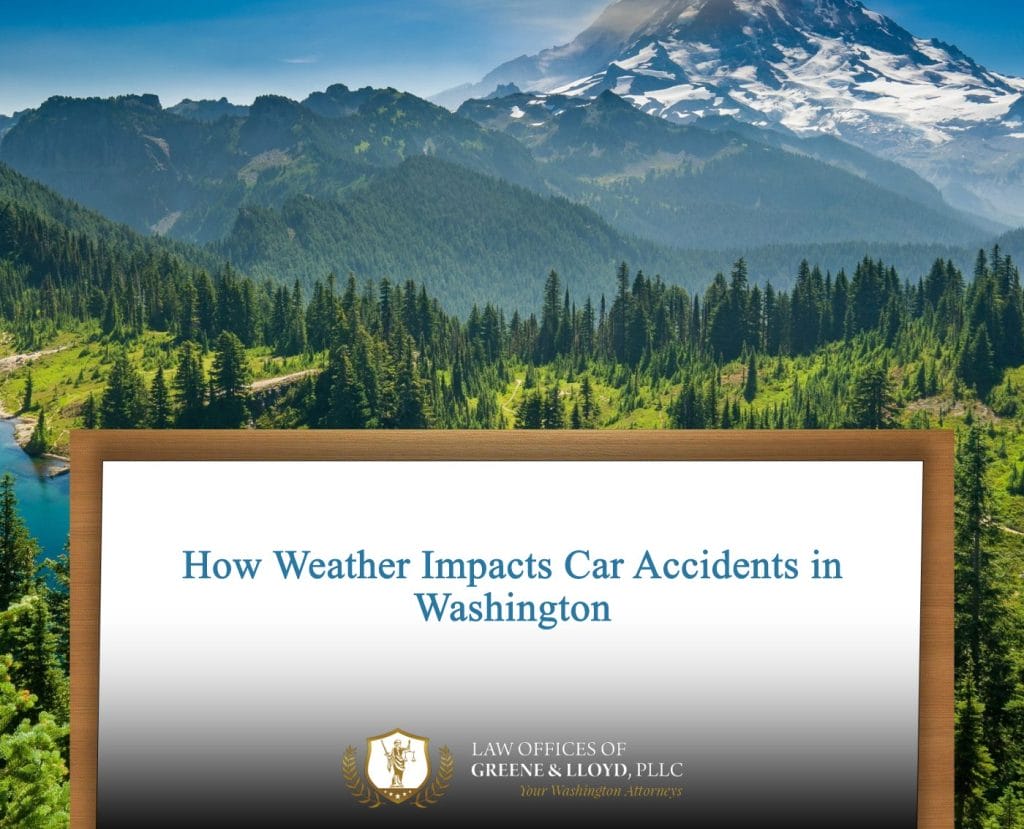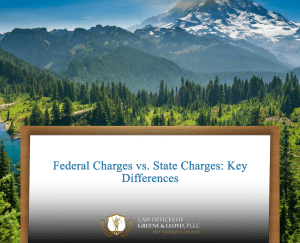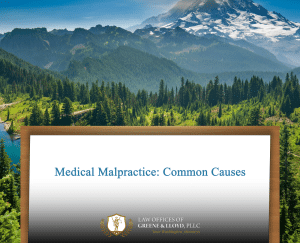## Understanding the Role of Weather in Car Accidents in Washington
Weather can significantly influence driving conditions, contributing to an array of car accidents. In Washington State, where rain and fog can frequently obscure visibility and slicken roads, understanding how weather impacts accidents is crucial for both drivers and legal professionals. Car accidents linked to adverse weather conditions present unique challenges, particularly when determining fault and navigating insurance claims.
In Washington, the weather varies enormously, from heavy rain to snow and ice, which in turn affects road safety. Rain creates slick roads, reducing traction and increasing the likelihood of collisions. Furthermore, in winter, snow and ice can make driving treacherous, often leading to multi-car pile-ups on highways. Legal professionals must be equipped with a thorough understanding of how these weather factors impact accident liability and victim compensation.
Navigating cases that involve weather-related accidents requires a clear understanding of state laws and precedents. This knowledge ensures that victims receive appropriate legal support and guidance. In Washington State, the interplay between weather conditions and road safety underscores the importance of approaching these cases with a focus on rigorous analysis and strategic legal representation.
## The Concept of Weather-Related Accidents
Weather-related accidents refer to crashes that are influenced by adverse weather conditions. This can include a variety of situations, such as reduced visibility due to fog or heavy rain, or compromised road traction when surfaces are icy or wet. When weather impacts accidents, the nature of the terrain and environmental conditions plays a pivotal role in determining fault and liability in legal disputes surrounding car accidents.
In Washington, understanding the nuances of weather-related accidents begins with recognizing that drivers must adjust their driving to meet current conditions. For instance, it is not uncommon to see a spike in accidents during the rainy season, a phenomenon familiar to most Washington residents. The law recognizes that idiosyncrasies in driving behavior can lead to tragic outcomes when the weather turns dangerous, placing a premium on adapting to prevailing conditions.
Legal cases often hinge on whether a driver acted reasonably given the weather situation. This includes assessing whether appropriate precautions were taken, such as reducing speed or maintaining more significant following distances during inclement weather. These considerations are vital for establishing whether a driver had acted negligently, and thus, whether there are grounds for a personal injury claim.
## Importance of Addressing Weather Impacts on Accidents
Understanding the implications of weather on car accidents is crucial for public safety and legal accountability. When these incidents occur, the outcomes can be devastating, often involving serious injuries or fatalities. Effective comprehension and communication of how weather impacts accidents can potentially save lives and provide essential insights for legal navigation.
For victims, understanding how weather conditions relate to their accident can directly affect their ability to claim compensation for damages. It highlights the importance of having sound legal advice to navigate the complexities of state laws regarding negligence and liability. By recognizing the push-pull dynamic between weather and driver responsibility, victims can better articulate how external factors contributed to their accidents.
Moreover, raising awareness about the legal ramifications of weather-related accidents can foster a culture of cautious driving, particularly in urban areas where traffic is densest. With knowledge comes responsibility; educating the community about the risks associated with poor weather can lead to more prudent driving habits, benefitting everyone on the road.
## Legal Framework Surrounding Weather-Related Accidents in Washington
The legal landscape for weather-related car accidents in Washington is shaped by the principles of negligence, which require that drivers operate their vehicles with the same reasonable care that a prudent driver would exhibit under similar conditions. This framework becomes particularly critical during adverse weather scenarios, where failing to adjust driving behaviors can lead to serious legal consequences.
In navigating these cases, the courts often take into account multiple factors, including the level of precipitation, visibility conditions, and road surface conditions at the time of the accident. For instance, if an accident occurs during a rainstorm caused by tire slippage, the driver’s negligence—defined by their failure to adapt to the conditions—becomes a central point of consideration in litigation.
Additionally, Washington’s comparative negligence laws complicate the assessment of liability in weather-related accidents. If both drivers share some blame for an incident, the compensation amount may be reduced based on their respective contributions to causing the accident. Thus, robust legal representation is essential for effectively arguing the nuances of a weather-related accident case while aiming for the highest possible compensation for victims.
## Real-Life Instances of Weather-Influenced Accidents
Analyzing real-world cases helps to elucidate the profound impact of weather on car accidents throughout Washington State. For example, during the winter months, numerous reports surface regarding accidents on icy roads, highlighting the necessity for drivers to adjust their behavior when conditions deteriorate. One notable incident involves a chain-reaction crash on Interstate 90 caused by extreme icy conditions, resulting in several injuries and extensive property damage.
Similarly, heavy rainfall throughout the year can lead to hydroplaning incidents, where vehicles lose traction and skid uncontrollably. An illustrative case from Seattle involved multiple vehicles hydroplaning due to sudden rain on a freeway, necessitating extensive investigations to evaluate driver responsibility and the role of weather in the resulting accidents. These instances serve as valuable reminders of the real risks associated with poor weather conditions.
Legal cases stemming from these accidents not only stress the need for diligent investigation but also illuminate the complexities of determining fault. Courts rely heavily on eyewitness accounts, surveillance footage, and weather-related data to dissect the events leading up to these tragic outcomes, making it essential for those affected to seek knowledgeable legal counsel following such incidents.
## Practical Measures for Drivers to Consider
Being educated on how weather impacts accidents invites drivers to take proactive measures in safeguarding themselves and others on the road. Simple strategies like reducing speed during adverse weather conditions can minimize the risks associated with slick surfaces and decreased visibility. Proper tire maintenance, including tread wear assessments and inflation levels, can also play a significant role in enhancing vehicle performance in rain or snow.
Another prudent strategy includes maintaining a safe following distance, especially in heavy rain or snow. By allowing greater space between vehicles, drivers can provide themselves with ample time to react to unexpected stops or skids. It is also important to keep headlights on in low visibility situations, ensuring that vehicles are easily seen by others on the road.
Lastly, embracing the responsibility of staying informed about weather forecasts prior to travel can play a crucial role in accident prevention. By making informed decisions regarding travel plans based on real-time weather updates, drivers can mitigate risks associated with inclement conditions. Education on these practical measures can contribute to safer roads, ultimately reducing the frequency of accidents related to hazardous weather.
## Common Pitfalls in Weather-Related Accident Claims
In the aftermath of a weather-related accident, victims may find themselves navigating through a complex web of legal and insurance issues. A common pitfall involves the misjudgment of liability based on weather conditions, leading to inadequate compensation. This can occur when victims feel deterred from seeking restitution because they believe the weather absolves others from responsibility.
Additionally, another frequent mistake occurs when drivers fail to document the circumstances surrounding the accident comprehensively. Photographic evidence, weather reports, and witness accounts can play a crucial role in establishing culpability during legal proceedings. Failing to gather this information promptly may inhibit their ability to present a solid case later on.
Victims might also overlook the importance of legal representation, choosing to handle claims independently without fully understanding their rights. In such cases, individuals may inadvertently settle for less than what they deserve, particularly when insurance companies capitalize on the temporal nature of claims to propose early settlements. Seeking educated legal guidance can mean the difference between receiving fair compensation or struggling to cover unexpected medical expenses and damages.
## Recognizing When Legal Support is Necessary
Despite the natural inclination to resolve car accident claims independently, certain scenarios necessitate the intervention of legal professionals. When accidents result in significant injuries or fatalities, navigating the intricacies of the legal system can prove overwhelmingly complex. Enlisting legal support can aid victims in understanding their rights, responsibilities, and the best course of action under the circumstances.
Situations in which fault is being actively disputed are also prime candidates for legal representation. If multiple parties claim different responsibilities based on their interpretations of weather conditions, an attorney can collect evidence, analyze relevant data, and build a robust case on behalf of their client. This becomes especially crucial in cases where comparative negligence laws may apply.
Furthermore, legal representation is invaluable when navigating insurance claims, particularly in discussions about timely settlements. Insurance companies often prioritize their profit margins over fair settlements, leading to contentious negotiations for accident survivors. With the right legal advocate, victims can enhance their position and approach negotiations from a place of strength, ensuring their rights are safeguarded throughout the process.
## Advantages of Obtaining Legal Representation
Having skilled legal representation during weather-related accident cases offers numerous advantages, from informed guidance through the complexities of the law to improved chances of obtaining fair compensation. An experienced legal team ensures that victims understand the intricacies of negligence laws, can navigate the claims process effectively, and are represented throughout negotiations.
Attorneys specializing in weather-related accidents are equipped to gather crucial evidence to substantiate claims. This could involve obtaining police reports, eyewitness accounts, weather data, and any other documentation that strengthens a client’s legal standing. The confidence that comes from having an attorney who understands these issues allows victims to focus on their recovery instead of being bogged down by the nuances of the legal system.
Additionally, representation in these cases elevates the likelihood of securing favorable settlements from insurance companies, especially where the law concerning liability is perplexing due to contributing weather factors. An attorney can negotiate effectively on behalf of their client, ensuring that their financial and emotional damages are duly recognized and compensated, thereby leveling the playing field against large insurance corporations.
## How Law Offices of Greene & Lloyd, PLLC Can Assist
Law Offices of Greene & Lloyd, PLLC possesses extensive knowledge and experience in dealing with weather-related accident claims throughout Washington State. Their understanding of the state’s legal frameworks coupled with a commitment to serving clients ensures that victims have the support they need during trying times. They prioritize developing strong cases by meticulously analyzing all aspects of an incident and tailoring strategies that align with clients’ unique circumstances.
Their experienced team is adept at handling complexities related to liability in weather-influenced accidents. By gathering essential evidence and working with accident reconstruction specialists when necessary, the firm strengthens cases through thorough investigation and preparation. Clients can trust that their legal matters are in capable hands, empowering them to focus on healing and recovery.
Through compassionate communication, Law Offices of Greene & Lloyd, PLLC demonstrates a commitment to fighting for the rights of their clients and providing personalized support every step of the way. In the face of unexpected challenges posed by weather-related accidents, they serve as dedicated advocates, working diligently to ensure that victims receive just compensation.
## Frequently Asked Questions About Weather-Related Accidents
## Additional Resources on Weather-Influenced Car Accidents
For further information regarding weather impacts on car accidents, various resources can provide insights and assistance for those affected by such incidents. The Washington State Department of Transportation regularly offers updates on road conditions and safety advisories during hazardous weather, which can be invaluable for planning safe travel.
Additionally, local law enforcement agencies often publish reports and statistics that outline the correlation between weather and accident frequency. These reports can serve as a reference point for victims seeking to understand the broader context of their situation.
Lastly, consulting with personal injury law firms, like Law Offices of Greene & Lloyd, PLLC, provides tailored insights regarding individual cases. They offer a wealth of knowledge about state-specific laws and practices surrounding weather-related car accidents, ensuring clients receive the information they need to make informed decisions.




